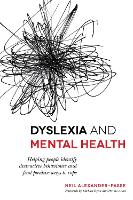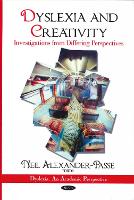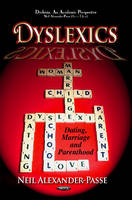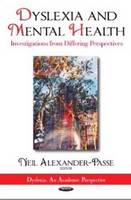Dyslexia and Mental Health: Helping People Identify Destructive Behaviours and Find Positive Ways to CopeAuthor :
Paperback
Published : Saturday 15 August 2015
You may also like ...

by
Paperback
15 Aug 2015
>>
€26.90
Extended stock – Dispatch 5-7 days

by
Hardback
28 Oct 2010
>>
€300.68
Extended stock – Dispatch 5-7 days

by
Hardback
25 May 2012
>>
€312.38
Extended stock – Dispatch 5-7 days

by
Hardback
01 Jan 2012
>>
€236.33
Extended stock – Dispatch 5-7 days
Description
This book presents research and case studies to demonstrate why and how people with dyslexia can adopt adverse coping strategies and defensive mechanisms to deal with the emotional impact of dyslexia, leading to self-harm, depression and even suicide. It then looks at how they can best be helped and supported by professionals who work with them.
Dyslexia is a complex condition that affects not only learning but every part of life. Experience or fear of social stigma can lead people with dyslexia to camouflage the difficulties they face, to withdraw and to adopt negative coping strategies, particularly if they lack adequate support, identification and intervention. This can have lasting impact on their emotional health. Neil Alexander-Passe is an experienced researcher and a special needs teacher in secondary mainstream education. He also has dyslexia. Neil uses his personal and professional experience to shed light on the complexities surrounding dyslexia and examines psychological theories such as ego-defence mechanisms and learned helplessness that reveal how people deal with its emotional impact. He offers guidelines and advice, illustrated with real life examples, about how to help people with dyslexia avoid harmful coping strategies and learn to deal with stress, anxiety and low self-esteem in more effective and psychologically positive ways. This book will help educational and clinical psychologists, teachers, mental health specialists, counsellors and therapists understand the emotional complexities of dyslexia.
Reviews